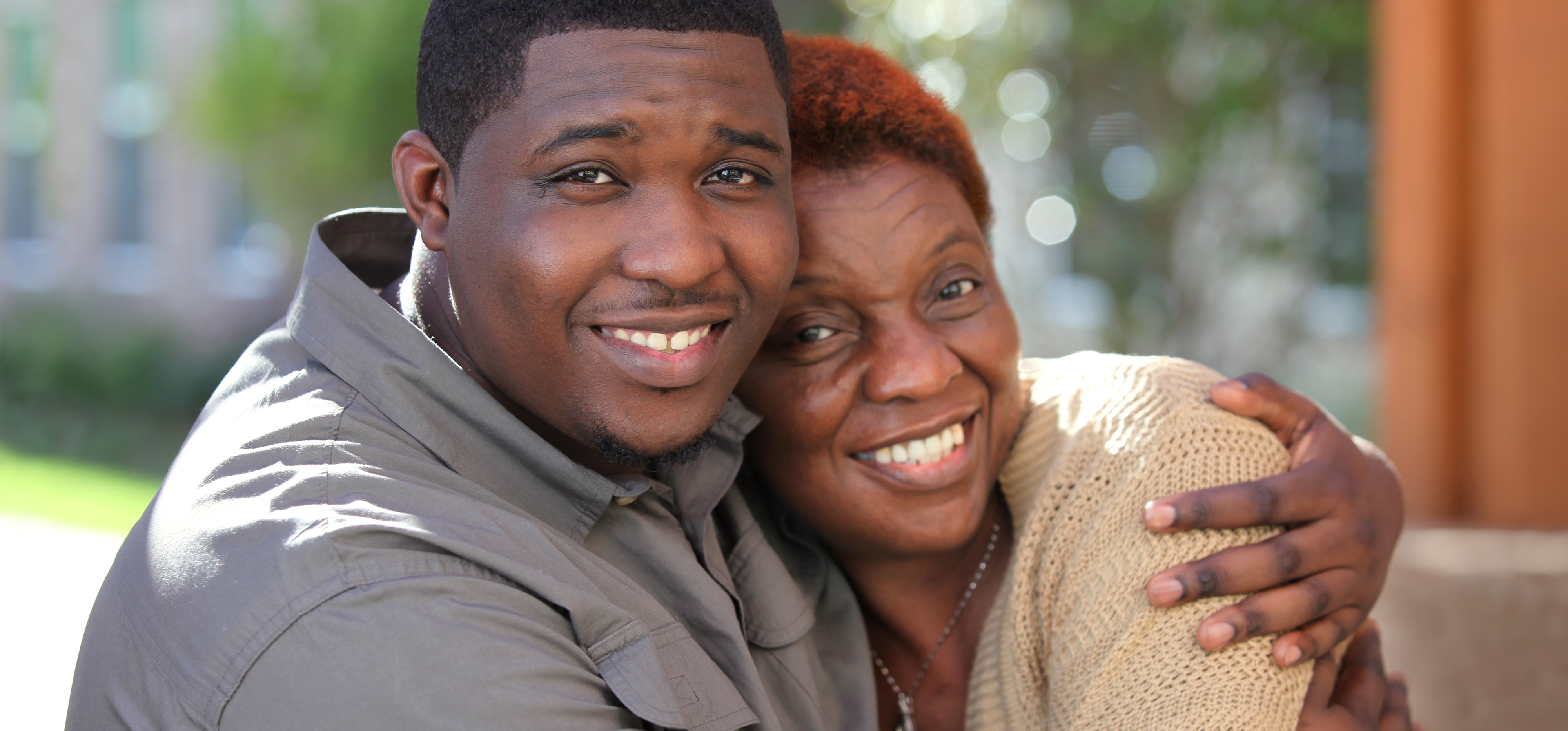Whether it’s the one you are born into or the one you create, family matters.
For people living with HIV having the support of loved ones can make a big difference in health outcomes, both physical and mental.
In the spirit of family, Greater Than AIDS has launched “We Are Family” – a new campaign that highlights the importance of social support for people living with HIV. Produced in partnership with the Georgia Department of Public Health, the campaign features profiles of a diverse group of individuals living with HIV and the people who support them.
They come from across the state and include a grandmother and her grown son, a college student and his parents, a pastor and his congregation, a mother and her gay son, a transgender woman and her sister, and childhood best friends. In a series of personal videos, they open up about how having the support of loved ones has helped them on their journey to get to where they are today: healthy, well and thriving.
“Crystal helped save my life by showing me love,” says Ambassador Masonia of her best friend, Crystal. In turn, Crystal says: “We are family. That’s what is most important – helping each other and being there for each other.”
The videos are a powerful example of the life-saving role a support system plays for people living with HIV.
We Are Family is designed to engage family members, friends, and allies of people living with HIV, as well as the broader community, to better understand the powerful role every person plays in ending HIV/AIDS.
According to new Kaiser Family Foundation survey of residents in Georgia, nearly half (46%) personally know someone living with or who has died of the disease. For those who have been most affected by the disease, the issue hits close to home. Among Black Georgians, more than one in four (28%) report having a family member affected by HIV.
Despite how prevalent HIV is, it is hardly ever talked about, even with those closest to us. According to Kaiser, the large majority of Georgians say HIV rarely comes up with friends, family or even intimate partners. Blacks and those with a personal connection to HIV were more likely to have had a conversation but still most had not.
“The advice I would give another parent living with HIV is find the right time and share what you are going through, because family matters,” says Cynthia, who has been living with HIV for more than two decades and appears in the campaign with her adult son, Marcus.
“We have the knowledge and tools to end HIV,” says Tina Hoff, Senior Vice President and Director of Health Communication and Media Partnerships at the Kaiser Family Foundation, which directs Greater Than AIDS. “The stigma is holding us back. We must talk more about HIV with the people in our lives.”
Fear of judgement can delay a person from seeking life-saving treatment or opening up about their status. Conversely, a person living with HIV who has support from their family and friends are more likely to get the care they need and keep up with treatment, which both improves health and helps prevent the spread of the disease.
“When I was newly diagnosed, I didn’t know a lot about HIV. When I had moments that I just wanted to talk about it, my mom was always a listening ear.” Greater Than AIDS Ambassador Abraham on the important role his mom has played in managing his diagnosis. “She’s always asking: ‘Did you take your medications today?’”
For many, one of the hardest parts of managing an HIV diagnosis is learning how to be comfortable with discussing it openly, without shame and stigma. We Are Family approaches this challenge from the outside in, by educating and empowering those who love someone living with HIV.
For more information about supporting loved ones, visit family.greaterthan.org.
